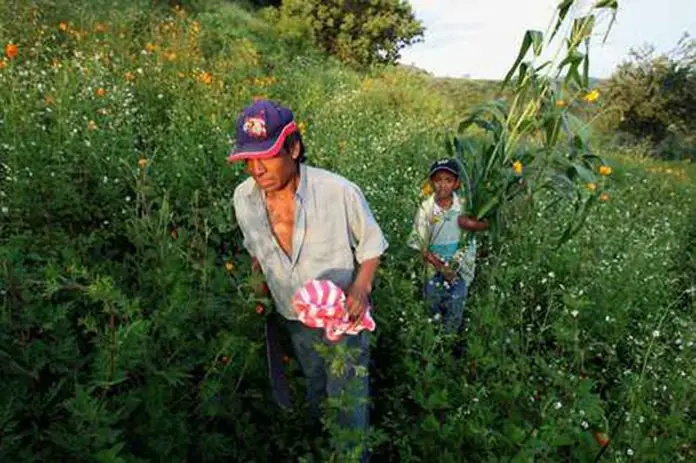Giving free money to small-scale farmers is not the solution to poverty, according to the incoming federal government’s agriculture secretary.
Speaking at the 5th National Congress of the National Confederation of Corn Producers, Víctor Villalobos said the government would instead establish fixed prices for some agricultural commodities.
“Giving money to the famers, giving them subsidies is not how we’re going to lift them out of poverty. What we need is to give them certainty with respect to how much their product, their harvest, is going to sell for and once that’s set the small producer will know that his corn, beans, wheat and rice will yield a price that will guarantee a profit margin . . .” he said.
Small-scale farmers will be paid guaranteed prices for up to 20 tonnes of corn, 15 tonnes of beans, 100 tonnes of wheat and 120 tonnes of rice, Villalobos said.
For wheat and rice, the new government’s price guarantee scheme will commence for the 2018-19 autumn/winter harvest, while for corn and beans it will start for the 2019 spring/summer harvest.
Dairy farmers will also be paid fixed prices for certain quantities of fresh milk starting January 1.
Villalobos, a director of the Inter-American Institute for Cooperation on Agriculture, said that 30 years of neoliberalism had left a lot of farmers living in poverty and therefore the farming sector needs to be “rescued” with a different policy approach.
“In the [neoliberal] model, the countryside was ignored except for one part that was dedicated to taking advantage of the liberalization of foreign trade . . .” he said.
“The countryside has to be rescued from a condition of abandonment . . . It has to be rescued from technological backwardness and [low] investment, rescued from the poverty and inequality in which millions of farming families find themselves, it has to be rescued from the poor public policies that over the past 30 years have made their situation worse.”
The asymmetry between technologically-advanced, large-scale, profit-driven agriculture and small-plot farming is not compatible with “a country that seeks to improve conditions of social development and maintain a model of stable economic growth,” Villalobos said.
The government’s agricultural policy agenda does not seek to undermine “the legitimate interests of agricultural entrepreneurs,” the future agriculture chief stressed, but rather to remedy poverty in the countryside, which he described as “a situation that makes better economic performance impossible.”
Source: La Jornada (sp)
